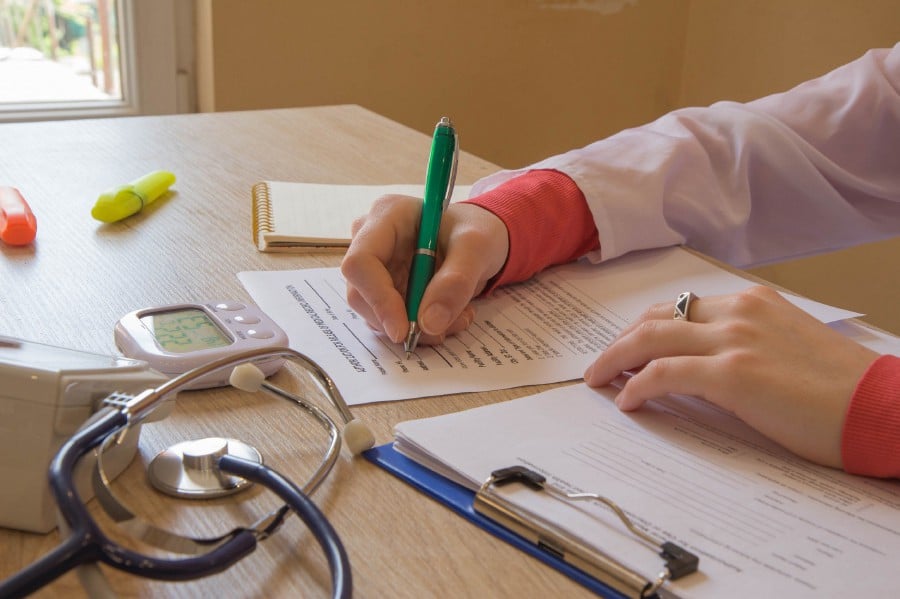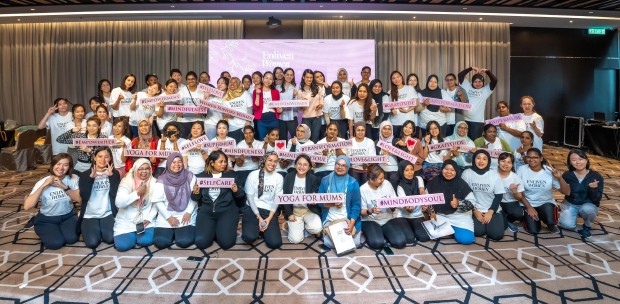WHEN it comes to health screening, Malaysians generally take a "wait and see" approach.
Women, in particular, are more likely to put off health screening for themselves despite being very meticulous in scheduling doctor's appointments for family members.
This does not work in their favour since early detection is crucial in the management of many diseases.
The goal of screening tests is to detect changes in the body before they become unmanageable so you have the chance to modify your lifestyle and steer away from a particular illness, explains IMU Healthcare consultant obstetrician and gynaecologist, and head of department, obstetrics and gynaecology, school of medicine, International Medical University, Dr Muralitharan Ganesalingam.
This essentially means we should go for health screenings while we are healthy.
"Our bodies go through a natural ageing process, and the goal is to age in a healthy manner," says Dr Muralitharan.
Generally, women between 19-24 years of age are at the peak of health. From the age of 25, fat begins to accumulate, especially in the hips, thighs and abdomen, while muscle mass deteriorates.
From the age of 35, bone mass depletes at a rate of 0.5 - 1 per cent per year.
Dr Muralitharan advises annual screening from early adulthood and twice a year after the age of 45.

FEMALE CENTRIC SCREENING
Some screening tests are particularly important for women, namely pap smears to check for cervical cancer, breast examinations to check for breast cancer and bone mineral density scans to detect osteoporosis.
Historically, cervical cancer used to be one of the dominant cancers in women, with 500,000 new cases a year worldwide and 250,000 deaths, says Dr Muralitharan.
But with efficient screening programmes through the use of pap smears, the incidence of cervical cancer has been reduced substantially.
"It is the most significant advancement in the control of cancer, hence annual screening for cervical cancer is something I emphatically encourage."
However, despite its efficacy as a screening test, Dr Muralitharan says a recent study found that only 45 per cent of Malaysian women have ever gone for a pap smear.
Breast cancer remains the most common cancer among Malaysian women. By recent estimates, 1 in 20 women will develop breast cancer and at least 9 individuals die of breast cancer every day.
Despite these statistics, only 1 in 4 above 40 years have ever had a mammogram.
As breast cancer is highly treatable when detected in its early stages, it is essential for all women to be disciplined about performing their own breast examinations, with an annual check by a doctor, who will advise if a mammogram is needed, says Dr Muralitharan.
Finally, as bone mineral density decreases with age and the risk of fractures increases, postmenopausal women 50 years and older should be screened for osteoporosis.
Among older persons aged 65 years and older, screening should be done at least once a year, according to Malaysian guidelines.

While health screening has many benefits, Dr Muralitharan says it should be done with care as needless testing can lead to anxiety.
For example, yearly mammograms may not be necessary as up to 50 per cent may reveal something abnormal but not all of these turn out to be cancerous.
"Screening tests only make sense if they are required and can lead to improved health."
At the end of the day, it is important to speak to your regular doctor about any health concerns and discuss what health screenings may be beneficial for you, based on your age, lifestyle and family history.
CHECK AND SCREEN
ANNUAL health screening for healthy adults should begin with:
Blood pressure to check for hypertension.
This disease affects 3 in 10 Malaysians.
Blood count to detect conditions like anaemia
Anaemia affects 3 in 10 women aged 15-49 years.
Blood glucose test to check for diabetes
Approximately 1 in 5 adults have diabetes.
Body Mass Index (BMI) to monitor weight gain/prevent obesity
National statistics show that 1 in 2 adults are overweight or obese.
Lipids test to check for elevated levels of cholesterol
Around 4 in 10 Malaysians have raised cholesterol levels, with women more likely to have higher levels than men.
Kidney function and liver profile
Chronic kidney disease affects 1 in 7 Malaysians, and diabetes is a significant risk factor.
Claim this iHerb promo code to stock vitamins for women.




